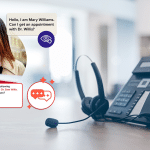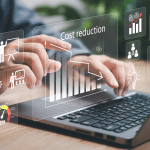Remote Training Gets the Job Done
- 20 July 2020
- Blog
eClinicalWorks

Acquiring new skills during the COVID-19 crisis
With recommendations to stay at home, self-isolate, and sometimes quarantine, the COVID-19 crisis means that many people finally have the time they need to focus on learning something new.
But what happens when knowledge and training that are normally delivered in person must now be done remotely?
Self-motivation and practice survival
When it comes to healthcare IT, practices seeking new tools and knowledge consist of self-motivated adults whose livelihoods may depend upon acquiring new skills. One 2009 study of adults in rural areas who were learning how to use telehealth solutions, concluded that patients “showed significant improvements in their ability to effectively perform tasks.”
Remote training has also been effective for practices adjusting to life during the coronavirus pandemic. The initial drop-off in patient visits and revenue has given way to infection-control procedures, masks, hand sanitizer, contactless check-in procedures, and a boom in the use of telehealth.
Along with all that comes a need for training on new products and services — training that may have to be delivered remotely.
Virtual training proves a success
“I signed on with eClinicalWorks, and about five or six weeks later the pandemic started,” said Dr. Cindy V. Padre, who runs a pediatric practice in Pearl River, New York.
When COVID-19 forced the practice to switch from in-person to virtual training, Dr. Padre was concerned.

“I thought, how could this happen? But I was pleasantly surprised that it worked out well,” she said. “It was as if the trainer was right there next to me, guiding me through some stuff.”
Dr. Padre said the trainer worked with each of her staff, adapting to their needs depending upon how adept they were with computers, and the practice was even able to continue seeing patients throughout the training sessions.
Building ongoing connections
Dr. Amy Bruton, who operates The Whole Woman, an OB/GYN practice in Raleigh, North Carolina, had never used an EMR before signing up with eClinicalWorks in April.
“I was very, very nervous about doing remote training, because I don’t generally learn well that way,” Dr. Bruton said. “But I had a wonderful trainer who signed in through the meeting portal that we had, and he would stay on all day, and I would see a couple patients here and a couple patients there, and he would train me in between on the EMR. It went really smoothly.”

Both Dr. Bruton and Dr. Padre noted that their eClinicalWorks trainers were available to them after Go-Live, and they have been able to reach out with additional questions as needed.
“Through eClinicalWorks University, I was able to get a little bit of a sense of how to start off an encounter, how to put in a patient for an appointment,” Dr. Padre said. “I was able to start seeing patients actively on the day I went live.”
“If you’re anxious or nervous about doing remote training, it’s understandable,” Dr. Bruton added. “But you don’t have to be, it does suffice for training. I’ve never had EMR experience before. And I think the remote training went really well.”








